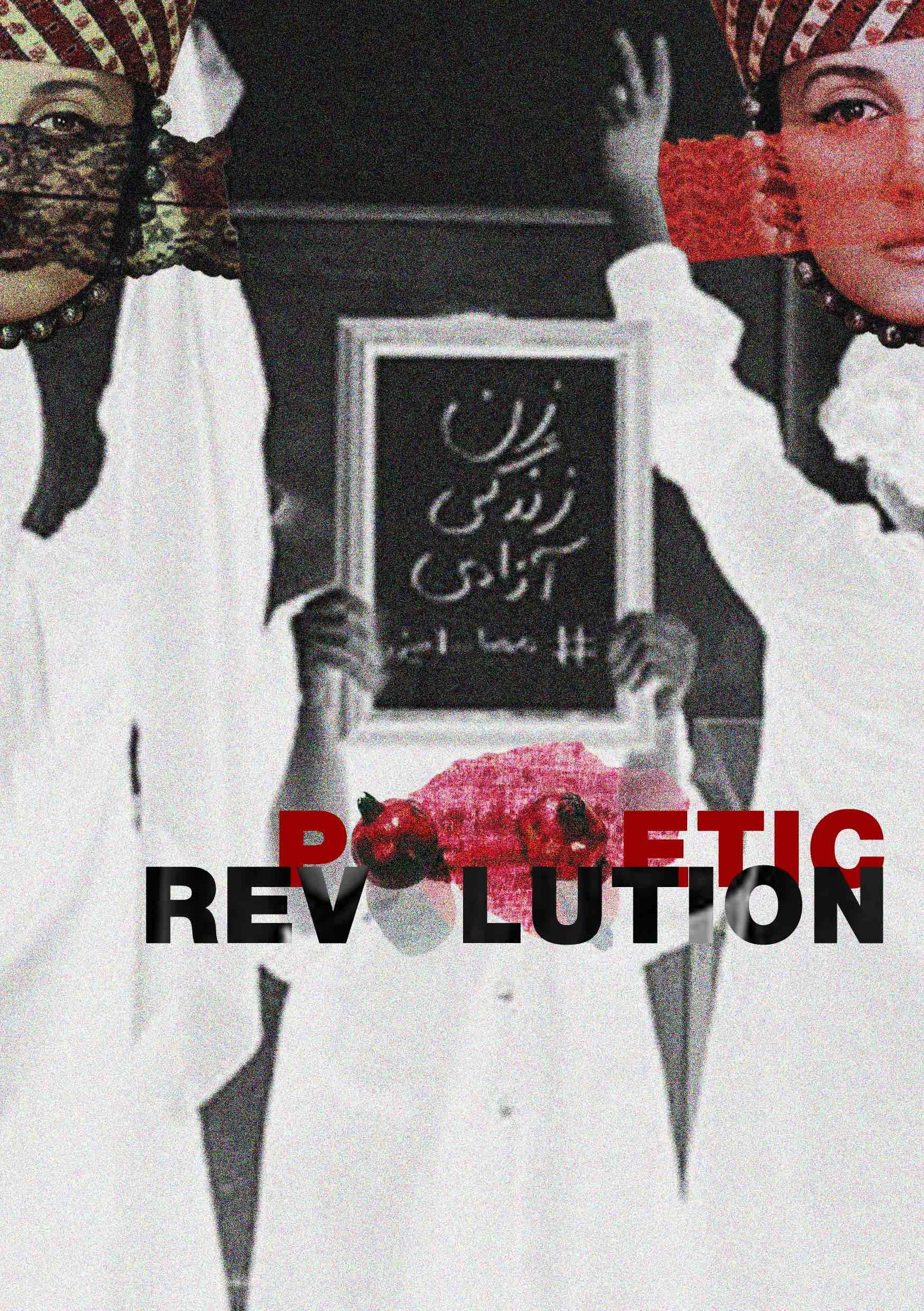Mahsa Foroughi
Poetic Revolution, 2022
Video, single-channel, sound, 9’ 13”
Editor: Saeed Foroghi, Composer: Lynden Bassett
About the Works
Born into the aftermath of the Revolution in Iran, Mahsa Foroughi has experienced first-hand the horrors of authoritarian repression. The many abuses of human rights by a brutal regime are once again in the world news since the death of Mahsa Amini in police custody in Iran earlier this year. The resulting protests, which continue to rock Iran at the time of this exhibition, are waged by a people, at great risk to their own lives, standing up against tyranny and fear. Mahsa Foroughi lends her voice to this resistance in a new work made especially for You Know That You Are Human @ POINTS of RESISTANCE V. Intercutting footage from the iconic film, The Color of Pomegranates (made in 1969 by Soviet Armenian filmmaker Sergei Parajanov), with research materials for her own film in production, A Poetic Suicide, and found footage from the internet documenting the current protests in Iran, Mahsa Foroughi weaves a poetic protest against inhumanity in all its forms.
ARTIST STATEMNT
The recurrence of history is dreadful! It’s haunting to witness the trauma we went through going live again. Seven years into the revolution that the Islamic party highjacked, I was born to a geography drowned in pain, bloodshed, mass slaughter, and a history of enduring violent oppression. The history that I’ve been carrying on my shoulders all these years. For all I know, my poems were filled with darkness I was experiencing in the chamber of my mind and out there in society. The dusk against which I fought and tried to survive. I was there when our votes were stolen in the year 2009. I was there and witnessed my friends and my fellow citizens being bashed brutally. Heart-wrenched as one can be, I relocated to what I hoped would be the freedom of the West, only to discover a brick wall of incomprehension that made me feel even more alone than I was. I verbalised my pain through poetry; I visualised the bloodshed through film. Apart from a handful of friends, that terror remained unknown to the rest of the world. To them, I was a Middle Eastern woman. As Kumar Daroftateh, a handsome 16-year-old Kurdish boy who was beaten to death by the Islamic thugs, beautifully posted,
We are the people of the Middle East
Some of us die in war,
Some in prison.
Some of us die on the road,
Some in the sea
Even the highest mountains
They take revenge for their loneliness from us,
Because our job is “to die”.
Kumar jan (dear Kumar), we are not a number, and our job is not to die. You know that you are human! We won’t stay quiet; we will shout your name and other children of sun as long as we are alive. Yes, history is recurring, but this time we are being heard. This time is A WOMAN REVOLUTION, and our men are at our side! Mahsa, Nika, Sarina, Hadis, Hannaneh, Ghazaleh, Minoo (and the list goes on), your blood is on the hand of the Islamic Regime, it’s running down the alleys of Iran’s cities, and it will drown these thugs so severely. Your blood also runs down our veins, creating a miraculous art…THE ART OF FREEDOM! The one I hope to capture in my short video.
- Mahsa Foroughi
Hear me as a woman.
Have me as your sister.
On purpled battlefield breaking day,
So I might say our victory is just beginning,
See me as change,
Say I am movement,
That I am the year,
and I am the era/of the women.
[Amanda Gorman]
About the Artist
Mahsa Foroughi (born in Iran. Lives and works in Sydney Australia and Berlin, Germany) is a poet, filmmaker, critic and architect. She was awarded her PhD for interdisciplinary research on architecture, film and philosophy that questioned the status quo of human perception. As an academic, since 2018, she has been teaching architecture history and theory at the University of New South Wales (UNSW), Sydney, Australia. Mahsa is one of the authors of The Theatre Times, a non-partisan, global theatre portal. She is currently an artist-in-residence at MOMENTUM in Berlin, developing and producing her docudrama, A Poetic Suicide. She has also finished her first non-fiction book, Haptic Visuality in Arts.


